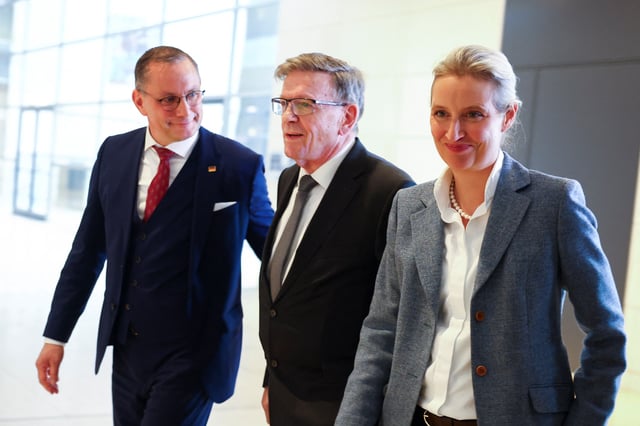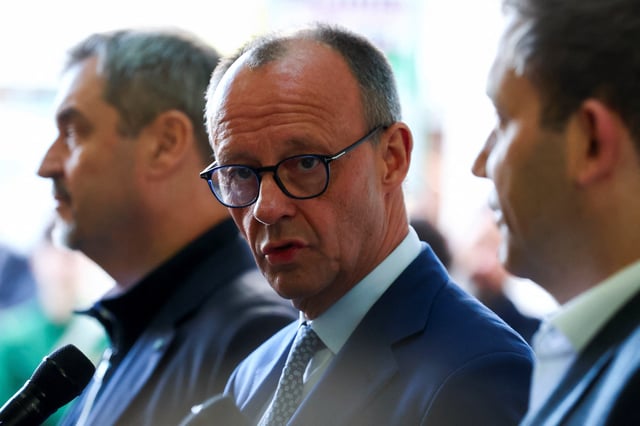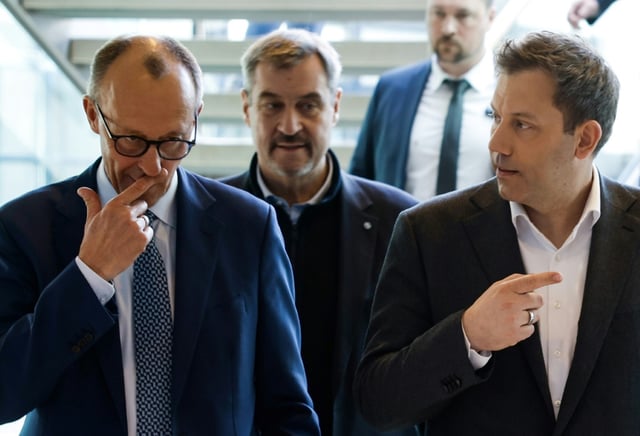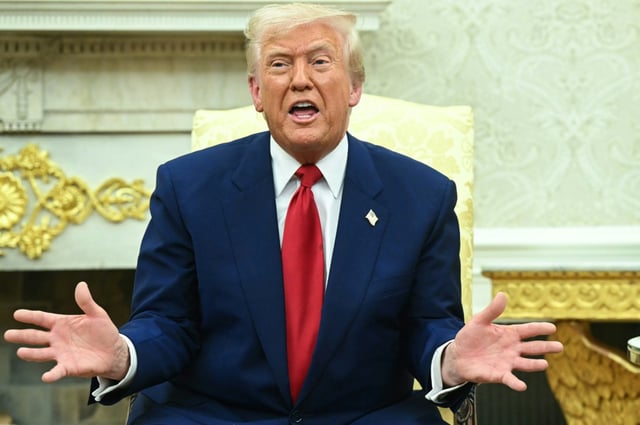Overview
- Friedrich Merz seeks to finalize a coalition with the SPD, aiming for a government agreement by the end of the week amid mounting economic and political pressures.
- Germany’s stock market plunged 10% following Donald Trump’s tariffs, intensifying calls for economic reforms and adding urgency to the coalition negotiations.
- Merz faces internal criticism for abandoning fiscal conservatism after approving €1 trillion in new debt to secure coalition support, straining his credibility with conservative voters.
- The far-right Alternative for Germany (AfD) has surged to record poll levels, matching the CDU/CSU for the first time in post-war history, highlighting political polarization.
- Merz’s approval ratings have dropped sharply, with only 25% of Germans expressing support for his leadership as his party grapples with dissent and declining trust.



